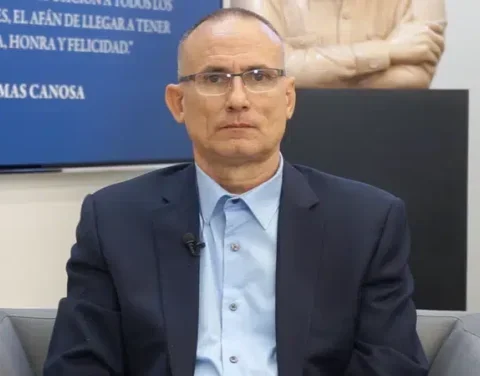In the last year of the Broad Front government, the Ministry of Education and Culture (MEC) had asked the National Internal Audit Office for a report to evaluate the internal control structure designed and implemented for the management of the Cultural Incentive Fund (FIC), administered by the National Council for the Evaluation and Promotion of Cultural Artistic Projects (Conaef).
The analysis began in June 2019, included the projects presented the previous year and lasted until August of last year, already in the new administration. The conclusion was that The internal control system implemented for the FIC has weaknesses that do not guarantee management in accordance with current regulations, nor that public resources have been used in a transparent manner and in equal conditions for applicants.
There, shortcomings were identified in the organizational structure of Conaef and weaknesses in its operation that, among other aspects, affected the assignment of responsibilities, the due opposition of interests, the timely and reliable registration of information for accountability, the issuance of financial statements and decision making.
The FIC is under investigation by the Economic Crimes Prosecutor’s Office, due to the complaint of a possible tax fraud and the lack of $7 million, in a situation that has dragged on since the last administration.
In a follow-up report, completed a few days ago and accessed by The Observerthe Internal Audit of the Nation detected new serious irregularities that pose an “extreme risk” for the interests of the State.
For example the conformation and integration of Conaef differs from what is established in its creation law. In the opinion of the audit, this affects the expected majorities for decision-making, opening the risk that their resolutions are legally invalid and liable to be challenged.
The report also found “prolonged absences and in some cases permanent” of the members of the council, without evidence of corrective actions. Also that the actions were not recorded in the Minutes Book but attached, with which all or part of the text can be replaced or lost. The last record of that book is from October 24, 2018, with just three signatures out of 17 possible, with which the legal backing of the decisions made cannot be guaranteed.
The AIN also verified extreme weaknesses in the process and the selection criteria of projects to be benefited. It is indicated that there is no evidence of a formal approval of the bases or conditions, since the corresponding minutes, which are not signed either, do not incorporate them. The approval of the guidelines in force for the preparation of budgets was not verified either. For example, the cap of 20% fees for project promoters.
As indicated, there is no specific criterion for an objective assessment of the proposals, nor goals and indicators to measure their level of success.
A central point of the observations revolved around the procedures foreseen to issue the proof of contributions of the companies before the General Tax Directorate (DGI). There it is stated that there are no guarantees on the integrity of the record in regard to its ownership and declared amount. This is due to the fact that the records are generated from an Excel spreadsheet without protection or control, with quotes and tax benefit percentages entered for each project.
It was also detected that the deposit receipts required by law were not requested to verify their veracity. Bank reconciliations were not carried out either, but credit points were made from the account statements, a procedure that does not ensure that the deposits have been credited correctly. Thus, the same official enters the data and generates the records, not being verified by a third party.
The AIN report pointed out that the procedure for releasing funds for the projects and the payments made do not guarantee that the money goes to whom it corresponds and with the corresponding documentary support. Among others, for contracts that do not include an account to be deposited, payments by bank transfer that are requested through a web form that the account holder does not require, and payments with checks without evidence of the legal representation of the signature of the person who withdraws them, that opens the possibility of making payments to those who do not correspond.
Another finding was that expenses were paid without proper documentary support. For example, the 2018 content jury received their fees without presenting the corresponding invoice.
The AIN said it had not obtained evidence that a follow-up is being carried out on the observations that arise from the control of the rendering of accounts presented by the promoters. The report warns that this situation leads to funds being released to projects with previous irregular returns.
Thus, based on the Accounting reports that analyzed the expenses and their analysis, the audit found that for an audiovisual project, individualized as B7.17.2, with a budget of $3,307,000, three items were released in 60 days. for a total of $1,013,000 without counting the surrender of the first two. Other projects were detected with a rendering of invoices without an official receipt that justifies their payment.
Another project, L.11.14.9, received a payment of $203,600 as royalties, but with documentation proving the withdrawal of profits. There were expenses rendered by a promoter in more than one project and multiple utility withdrawal documents from the same promoter company. Also, contributions to the Social Security Bank (BPS) where people who are not charged to the referred project are declared.
Regarding the reliability of the information on the fund, it was found that the web platform and the internal records have weaknesses, errors and omissions that do not allow determining the real situation of the status of the projects and comparing the pending releases with the bank balances.
The last audited financial statement dates from 2010. Since then, balances were made until December 31, 2017, the date on which there is an account called “unidentified payments” for a total of $22,722,000. An amount that, indicated the AIN, has been carried forward incrementally until this year and is netted with another account, “Contributions m/n companies”, whose final balance is $3,881,000.
Said amount, it is pointed out, does not coincide with the balance of another account, “BROU m/n Specific Fund”, for $4,876,000. As there was no bank reconciliation or reliable information, it was not possible to establish the cause of this difference.

















